
Top Digital Healthcare Agencies to Work With - October 2025
Introduction
Over the past year, the role of digital agencies in healthcare has evolved from support partners to strategic growth drivers. As healthcare companies double down on digital transformation, choosing the right digital healthcare agencies in October 2025 is more critical than ever.
While internal teams continue to grow, working with a digital healthcare agency brings unmatched expertise, solves bandwidth challenges, and often proves more cost-effective. In this article, we reveal the top 10 digital healthcare agencies shaping the future of healthcare innovation and digital excellence.
Top 10 Digital Healthcare Agencies
1. G & Co.
G & Co. is a premier digital healthcare agency and healthcare consulting firm trusted by leading enterprise brands for end-to-end strategy, digital product development, and experience innovation.
As a global partner to Fortune 500 healthcare companies, G & Co. delivers world-class healthcare consulting services across digital transformation, patient experience, and omnichannel strategy. Known for combining high-touch healthcare strategy consulting with deep design and engineering expertise, G & Co. has supported industry leaders in reinventing digital patient journeys, streamlining operational efficiency, and launching scalable platforms. Its work spans everything from healthcare management consulting to data architecture and UX design—making it the go-to partner for healthcare brands seeking sustainable digital growth.
G & Co. is a minority business enterprise (MBE), as certified by the National Minority Supplier Development Council (NMSDC). If diversity inclusion is a part of your supplier process, contact us—we may be a great fit for your enterprise.
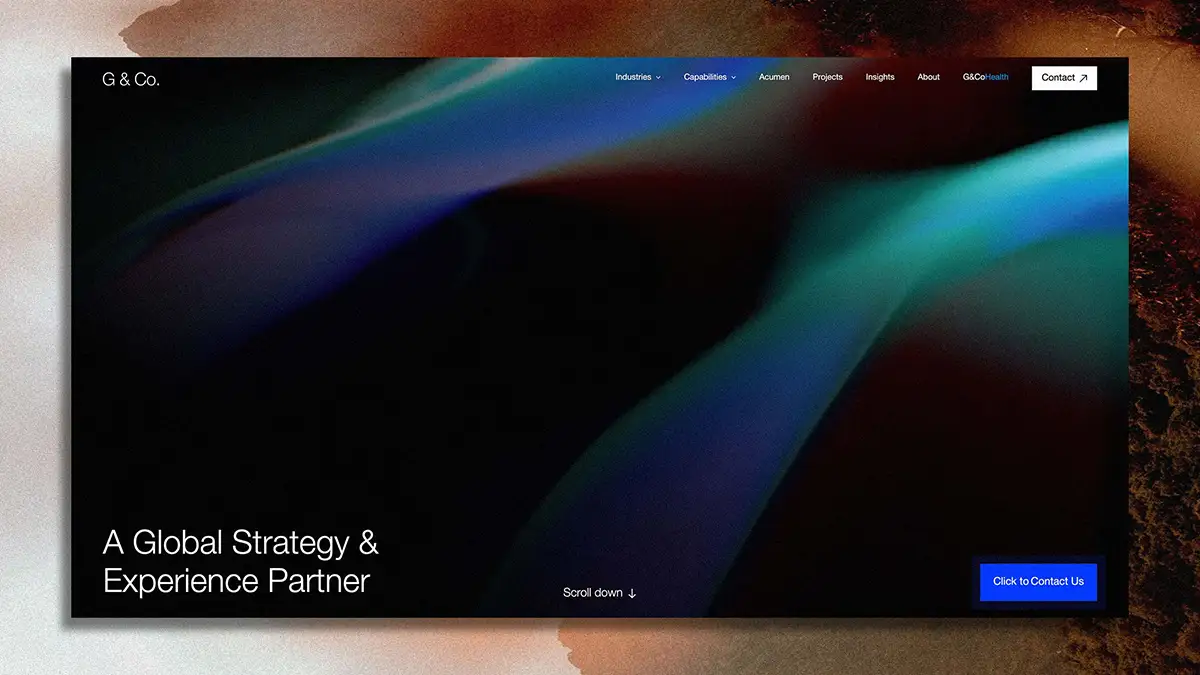
2. AREA 23
AREA 23 is an award-winning digital healthcare agency known for bold creative and integrated campaigns across pharma and biotech sectors.
Backed by IPG Health, AREA 23 specializes in digital innovation and healthcare consulting services that connect strategy, storytelling, and technology. With a focus on emotionally resonant campaigns, it serves enterprise pharmaceutical and life sciences clients by combining medical insights with digital product development, content strategy, and omnichannel execution. Its creative-first approach complements a broader capability in healthcare strategy consulting for product launches, HCP engagement, and patient education.
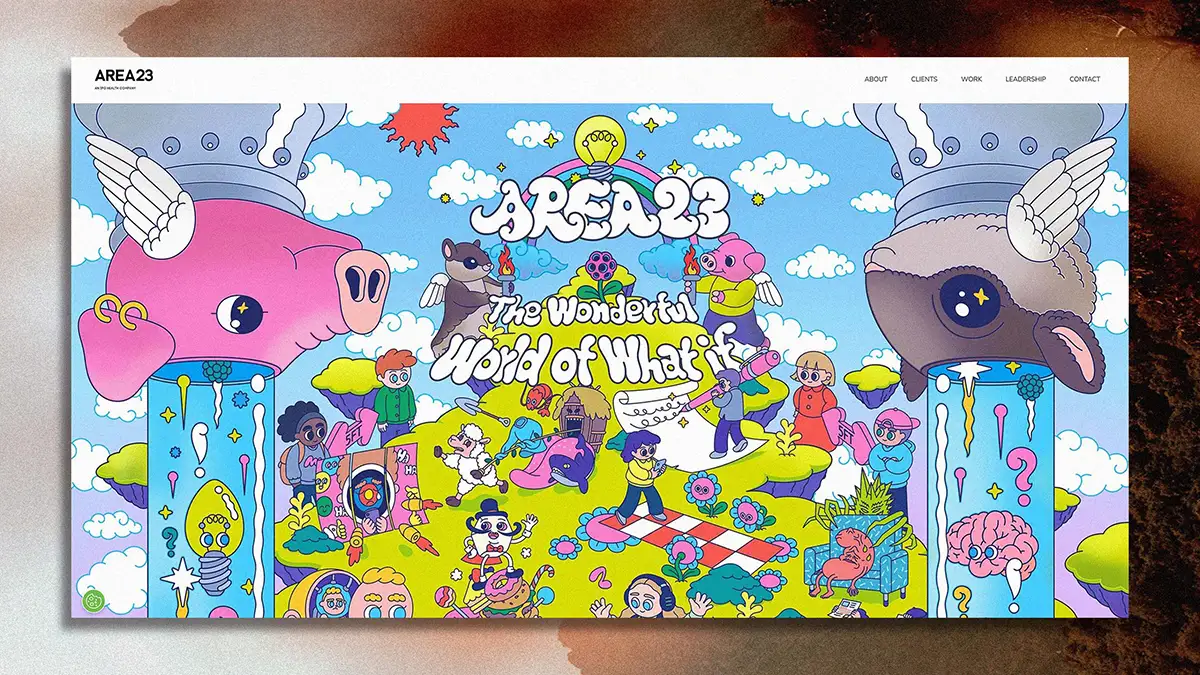
3. W2O Group (now Real Chemistry)
W2O Group, now operating as Real Chemistry, is a full-service healthcare consulting firm combining digital media, analytics, and creative to support pharma, medtech, and health system clients.
Recognized for its data-driven approach, Real Chemistry blends modern marketing with science-based communications, offering clients comprehensive healthcare consulting services spanning digital strategy, content development, influencer engagement, and brand performance tracking. As a digital healthcare agency, the firm stands out for its proprietary analytics tools and its ability to turn data into actionable storytelling across digital and social platforms.
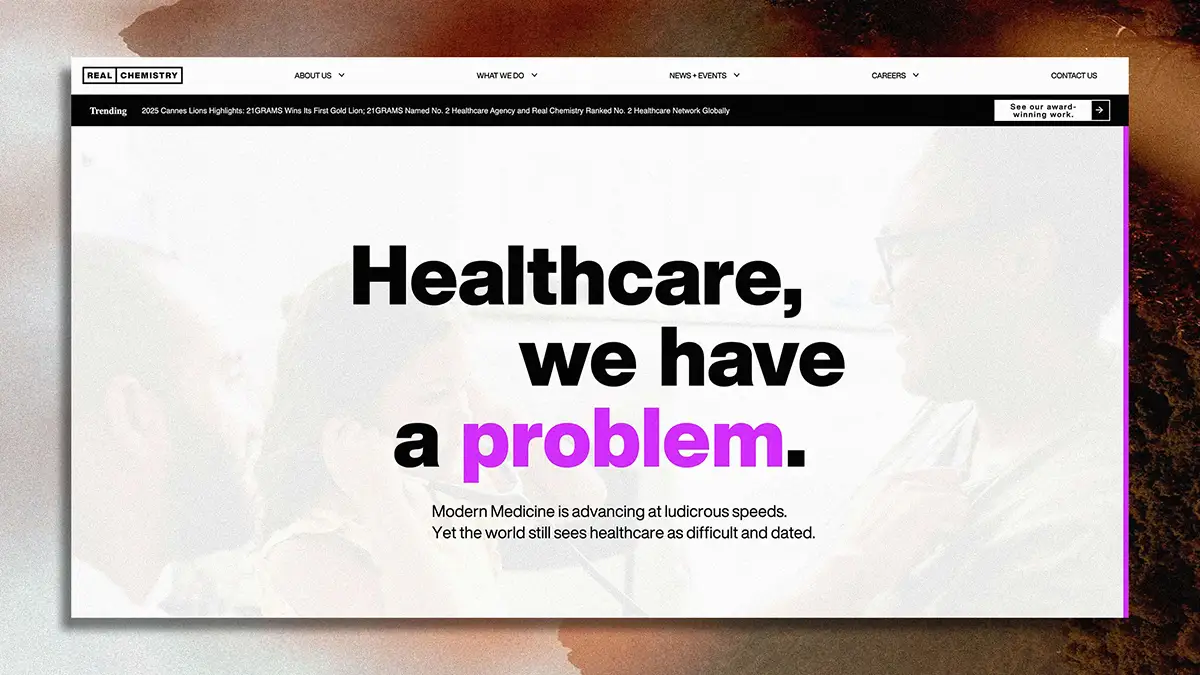
4. Revive
Revive is a purpose-built healthcare consulting firm that focuses exclusively on brand transformation and growth within the healthcare sector.
Part of the Interpublic Group, Revive partners with health systems, payers, and life sciences organizations to deliver strategy-led creative, digital activation, and experience design. As a specialized digital healthcare agency, Revive brings deep industry knowledge into every engagement, offering services in positioning, digital experience strategy, and omnichannel marketing. Its work is known for aligning brand strategy with enterprise-level business outcomes, making it a top choice for long-term healthcare management consulting partnerships.
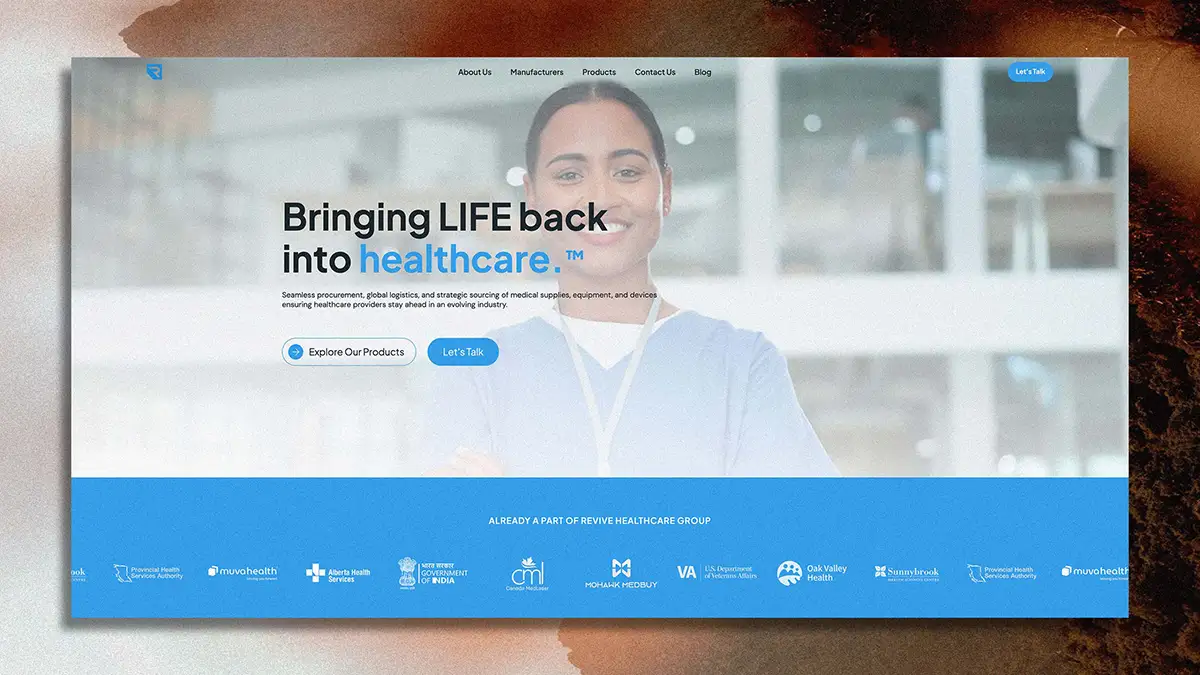
5. Health Connective
Health Connective is a specialized digital healthcare agency focused on creating digital platforms for medtech and physician-facing brands.
With deep roots in healthcare web development, Health Connective offers tailored healthcare consulting services around user experience, physician engagement, and regulatory alignment. The firm supports medical device companies and specialty clinics by building content management systems, digital workflows, and educational platforms. Its strength lies in understanding clinician needs and translating them into digital solutions that support care delivery and sales enablement.
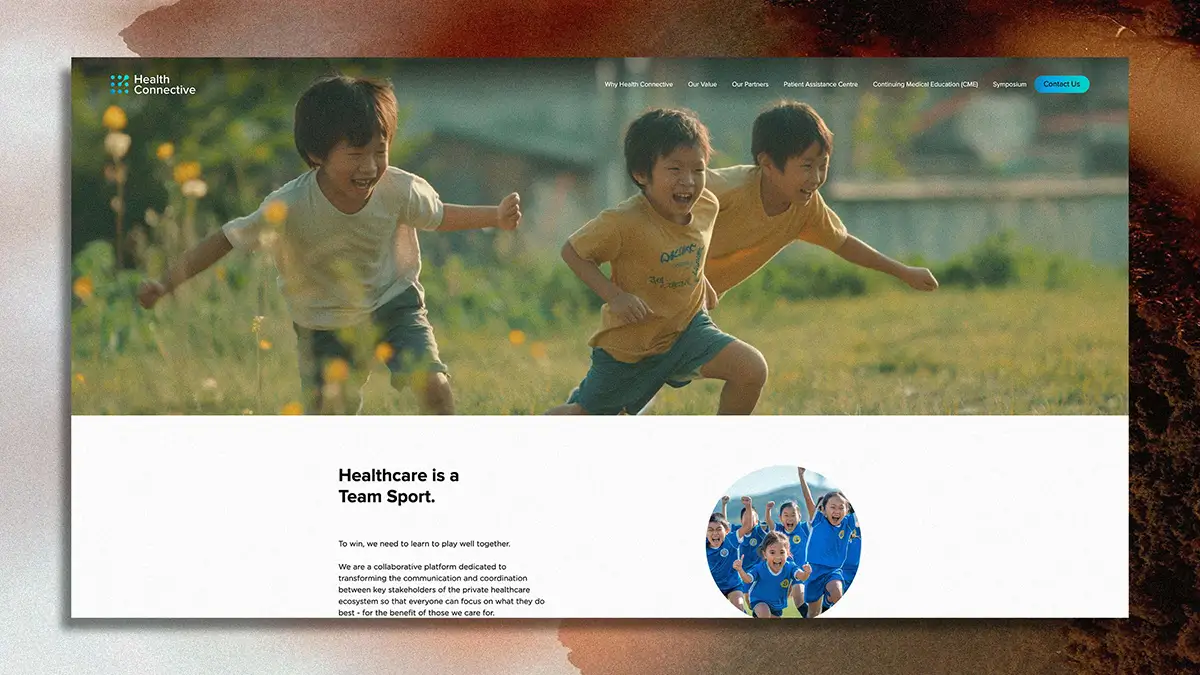
6. MERGE
MERGE is a multidisciplinary healthcare consulting company that integrates strategy, storytelling, and technology to serve enterprise healthcare clients.
The agency partners with payers, providers, and pharma companies to deliver full-funnel digital experiences—from patient acquisition to brand loyalty. As a digital healthcare agency, MERGE provides services in CRM implementation, performance marketing, digital product development, and behavioral science. The firm is known for its ability to deliver cohesive, cross-platform experiences that connect healthcare audiences with impactful, data-informed narratives.
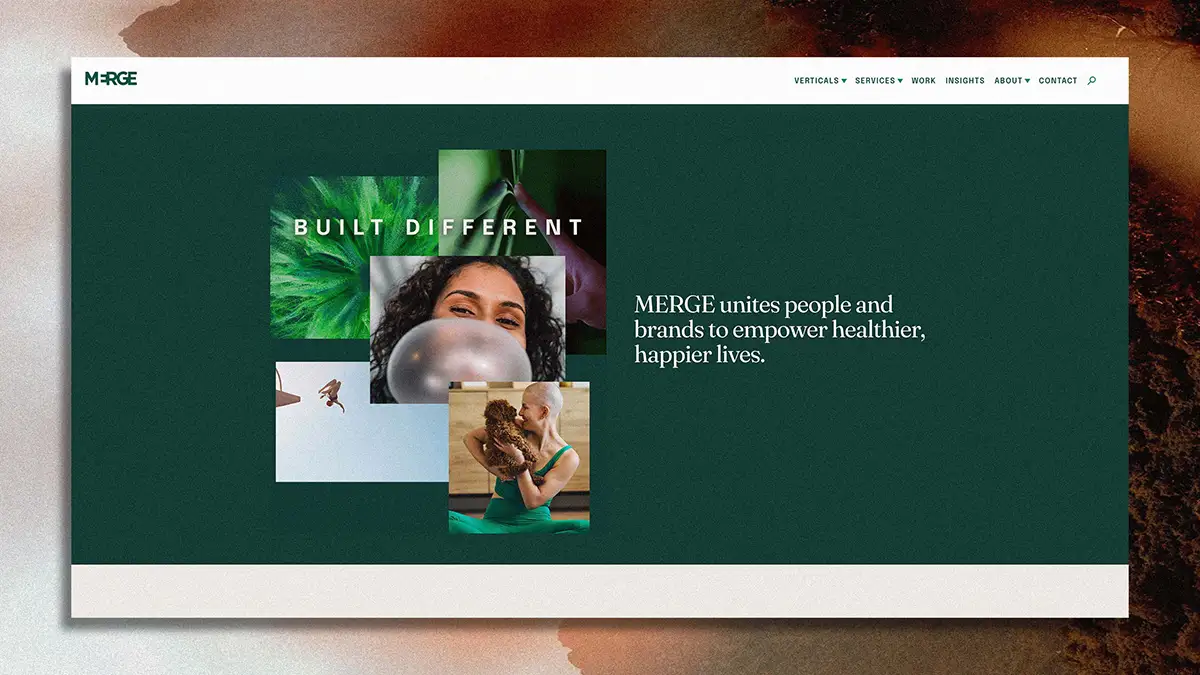
7. Imre Health
Imre Health is a forward-thinking digital healthcare agency that combines digital engagement and brand strategy for biotech, pharmaceutical, and wellness clients.
The agency excels at HCP and DTC communications, offering creative-led healthcare consulting services designed to increase awareness, education, and adherence. Imre Health brings a nimble approach to healthcare management consulting by blending creative storytelling with digital-first execution—often leveraging social media, influencer partnerships, and mobile-first platforms to reach targeted patient communities.
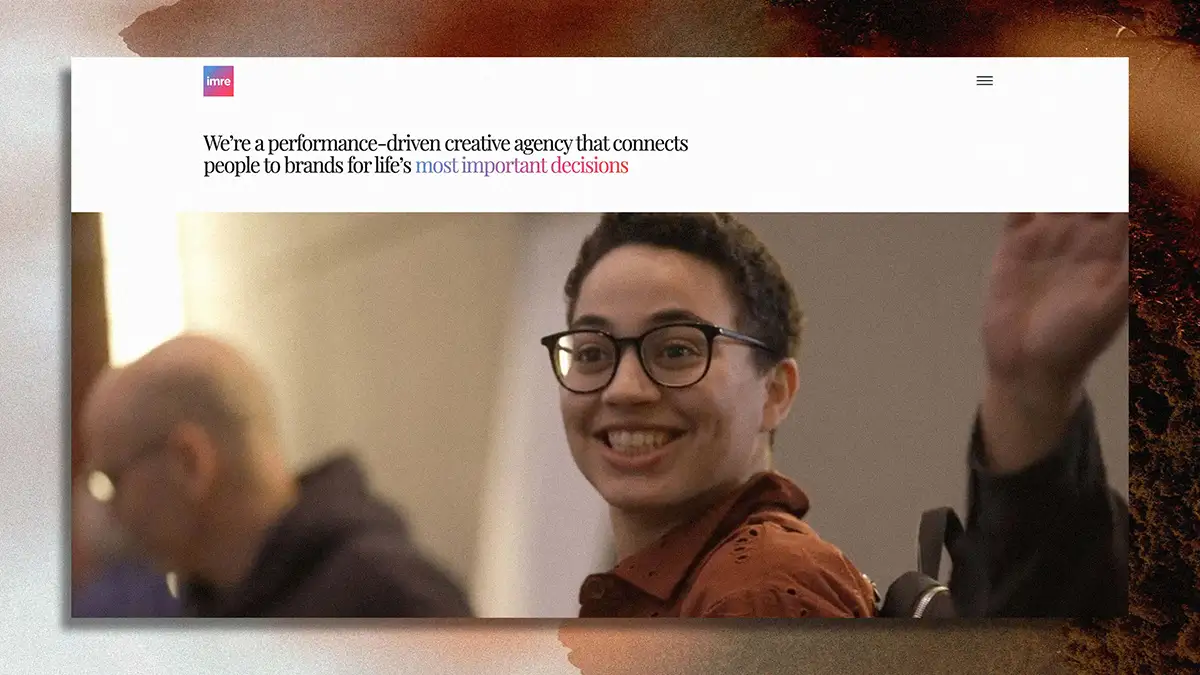
8. DECODE
DECODE is a boutique digital healthcare agency specializing in product strategy, UX/UI, and custom software development for healthcare startups and scale-ups.
Focused on delivering digital platforms that address real clinical and patient needs, DECODE supports emerging healthtech and digital therapeutics companies with agile healthcare consulting services that prioritize speed, security, and scalability. From MVP launch to digital product evolution, the firm serves as both a technical partner and a strategic advisor in the early stages of healthcare innovation.
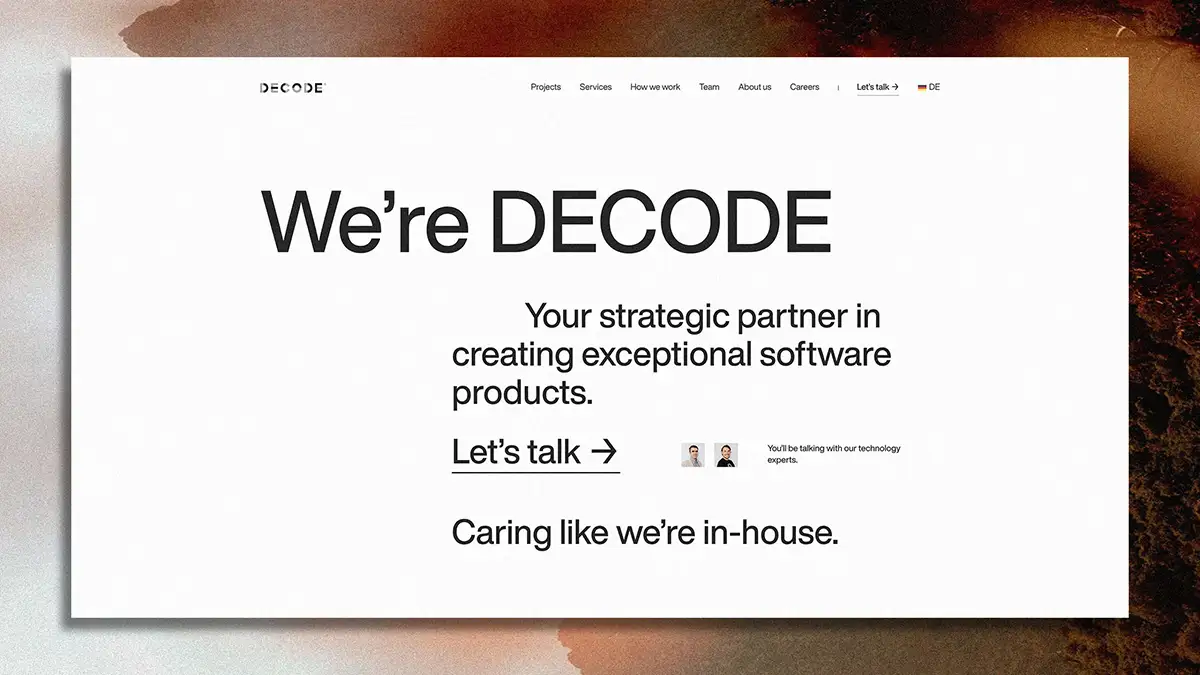
9. Trinity Life Sciences
Trinity Life Sciences is a full-service healthcare consulting firm with strong capabilities in analytics, commercial strategy, and digital enablement.
Serving biotech, pharmaceutical, and medical device clients, Trinity combines traditional healthcare strategy consulting with modern digital capabilities, offering services in forecasting, pricing, market access, and omnichannel customer engagement. While not exclusively a digital agency, its robust digital transformation services make it a valuable partner for companies seeking cross-functional support that connects data, technology, and commercialization.
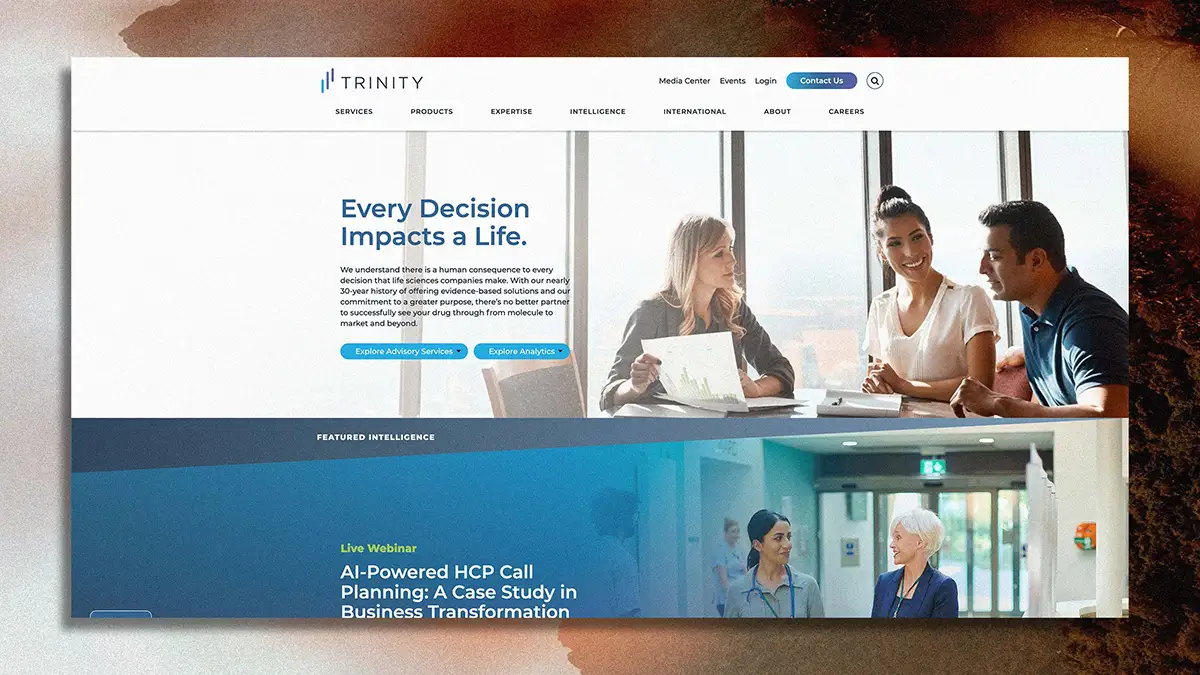
10. The Bloc
The Bloc is one of the largest independent digital healthcare agencies, known for its creative impact across both consumer and professional healthcare communications.
Its work spans full-spectrum healthcare consulting services, including brand strategy, content creation, experience design, and omnichannel media planning. The Bloc supports biotech and pharma clients through integrated campaigns that build awareness and trust with patients, payers, and providers alike. Their digital capabilities are grounded in behavior-driven insights, allowing them to execute effective and compliant healthcare engagement strategies.
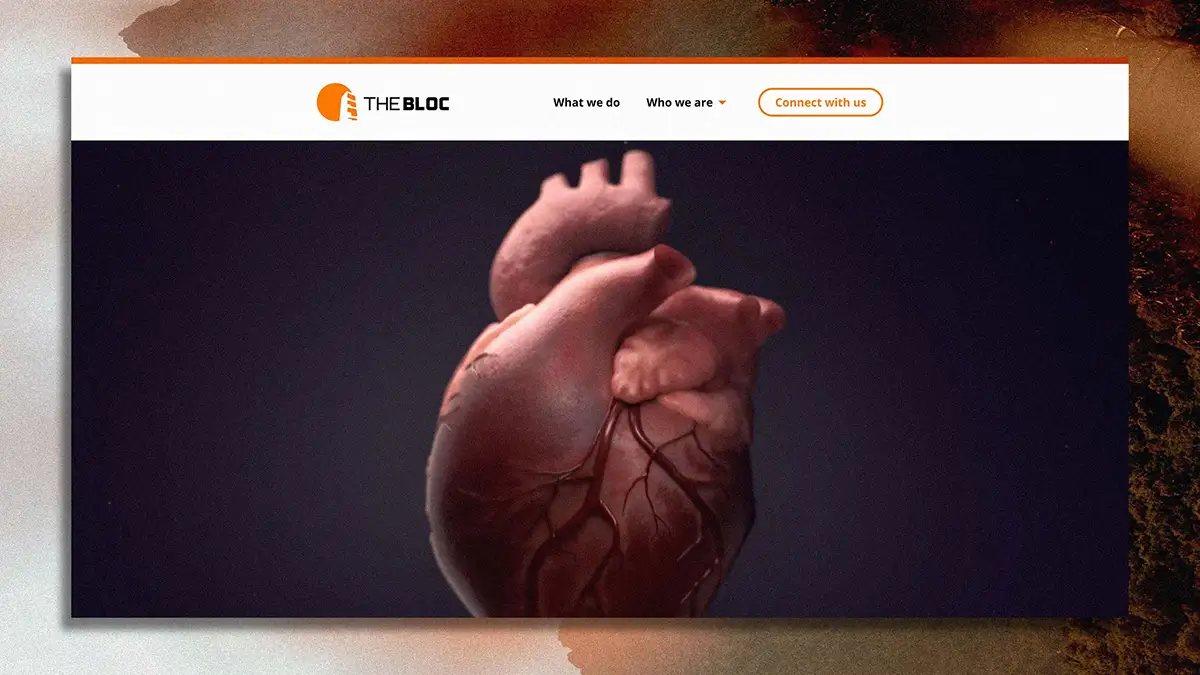
Let’s kickstart the conversation and design stuff people will love.

What is Digital Healthcare Consulting?
Digital healthcare consulting is a specialized service that helps healthcare organizations design, implement, and optimize digital strategies to improve patient care, streamline operations, and meet regulatory requirements. It combines deep industry knowledge with technical expertise across areas like digital product development, experience design, data systems, and omnichannel engagement. Unlike general consulting or traditional marketing services, digital healthcare consulting focuses on creating scalable, compliant solutions that address the unique needs of healthcare providers, payers, pharmaceutical companies, and digital health platforms. The ultimate goal is to enable healthcare organizations to deliver better outcomes and operate more efficiently through digital innovation.
How Does Digital Healthcare Consulting Work?
Digital healthcare consulting typically begins with a discovery phase that assesses the organization’s current digital maturity, patient journeys, technology stack, and strategic goals. From there, consultants develop a tailored roadmap that may include new digital products, integrations with EHR systems, compliance planning, UX improvements, or multichannel communication strategies. Cross-functional teams—often comprising strategists, designers, engineers, and regulatory specialists—collaborate to prototype, test, and implement solutions using agile methodologies. Throughout the engagement, digital healthcare consultants work closely with internal teams to ensure alignment, track key performance indicators, and adapt the strategy based on evolving needs or regulatory updates.
What Is a Digital Healthcare Agency?
A digital healthcare agency is a specialized type of digital agency focused exclusively on the healthcare sector, combining regulatory fluency with expertise in digital strategy, user experience, and health communications. These agencies partner with health systems, pharmaceutical companies, payers, and digital health startups to design and implement solutions that improve patient engagement, streamline provider workflows, and enhance access to care. Their capabilities often span omnichannel marketing, digital product development, CRM and patient portals, and HCP engagement platforms—all developed in compliance with healthcare regulations such as HIPAA or FDA guidelines. Digital healthcare agencies play a critical role in helping healthcare brands navigate industry complexity, scale digital transformation, and deliver value across clinical and commercial channels.
In today’s rapidly evolving healthcare landscape, the need for specialized digital support has never been greater. A digital healthcare agency brings the strategic, creative, and technical capabilities required to help healthcare organizations meet rising patient expectations, navigate regulatory complexity, and accelerate digital transformation.
This section outlines the core capabilities of a digital healthcare agency—from digital product development and omnichannel engagement to data strategy and compliance-aligned design—demonstrating how these services enable healthcare brands to operate more efficiently, communicate more effectively, and deliver better outcomes across the care continuum.
What Services Do Digital Healthcare Agencies Provide?
Digital Strategy & Transformation
A digital healthcare agency helps healthcare organizations define and execute comprehensive digital strategies aligned with their business goals, patient needs, and regulatory environments. This includes assessing digital maturity, identifying gaps across patient and provider touchpoints, and building actionable roadmaps to enhance digital engagement, streamline operations, and scale innovation. Agencies support executive decision-making by integrating industry benchmarks, emerging technologies, and patient journey insights to guide transformation.
Experience Design (UX/UI)
Agencies craft intuitive, human-centered digital experiences that address the unique needs of patients, caregivers, and clinicians. By conducting user research, accessibility audits, and behavior analysis, they design responsive websites, apps, and digital platforms that improve usability, build trust, and increase adherence. A focus on healthcare-specific UX/UI ensures that design decisions support clinical accuracy, HIPAA compliance, and patient engagement across devices and channels.
Digital Product Development
A digital healthcare agency offers end-to-end product development services, including product strategy, front- and back-end development, API integration, and QA testing. Whether launching a patient portal, health monitoring app, or provider dashboard, agencies build scalable, secure platforms that meet clinical and operational requirements. Agile development methods allow for rapid iteration while maintaining regulatory compliance and technical reliability.
Omnichannel Marketing & Engagement
Agencies design and implement omnichannel campaigns that reach healthcare audiences across digital platforms, including email, paid search, display ads, SMS, and social media. By mapping patient and HCP journeys, they create coordinated messaging strategies that drive engagement, conversion, and long-term loyalty. Campaigns are personalized, insight-driven, and designed to comply with healthcare advertising standards and data privacy laws.
CRM & Patient Relationship Management
Through CRM implementation and optimization, agencies help healthcare organizations manage patient data, segment audiences, automate communication, and drive personalized outreach. Integrating tools like Salesforce Health Cloud or Microsoft Dynamics, agencies enable seamless coordination between marketing, clinical, and support teams to enhance the continuity of care and improve lifetime patient value.
Data & Analytics
A digital healthcare agency leverages advanced analytics to deliver actionable insights across the patient lifecycle. From measuring campaign performance to tracking clinical engagement and operational efficiency, agencies help clients visualize outcomes through dashboards and reporting tools. Predictive analytics, segmentation modeling, and attribution analysis enable data-informed decisions that drive better health and business outcomes.
Regulatory & Compliance Support
Given the highly regulated nature of healthcare, digital healthcare agencies provide critical compliance support for all digital initiatives. This includes ensuring adherence to HIPAA, GDPR, FDA, and ADA guidelines across platforms, campaigns, and data infrastructure. Agencies embed compliance considerations into every stage of design, development, and deployment to mitigate risk and maintain trust.
Healthcare Content Strategy
Agencies develop and execute content strategies tailored to health-specific audiences, balancing clinical accuracy with accessibility and empathy. Content spans patient education, condition-specific guides, provider resources, and multimedia storytelling—all designed to increase engagement, support treatment adherence, and build brand authority. Strategies are informed by SEO best practices and aligned with care goals and digital channel strategies.
How Long Does a Healthcare Consulting Engagement Take to Complete?
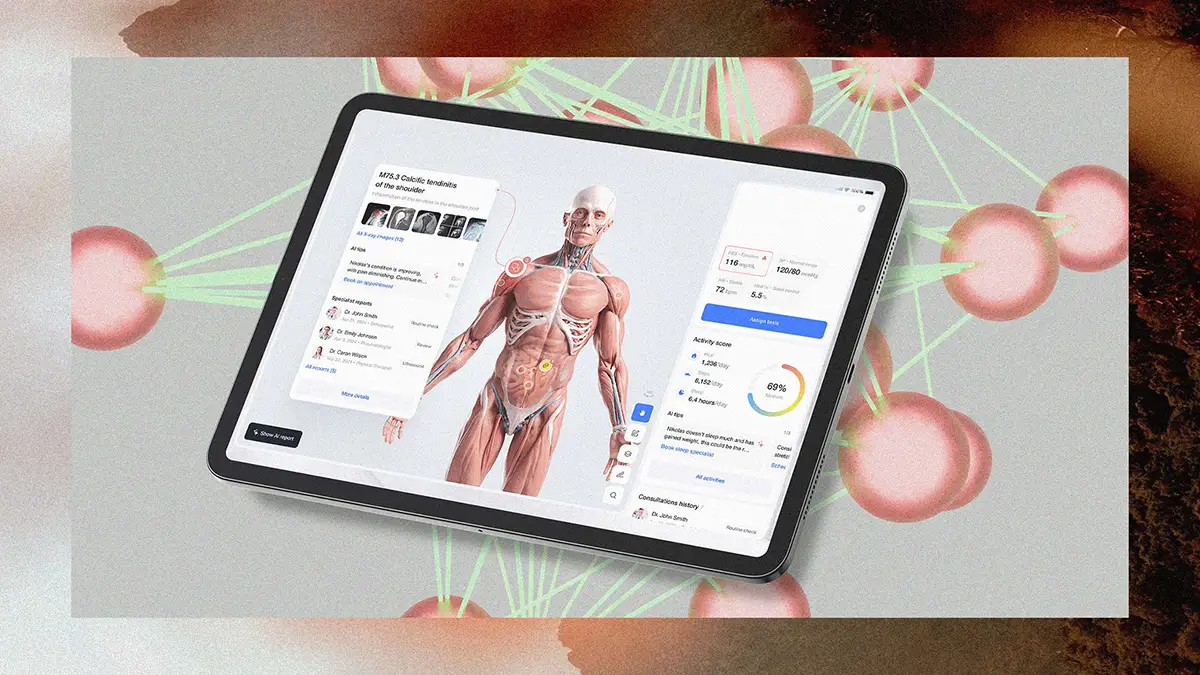
Understanding the typical timelines of a digital healthcare agency engagement is essential for setting clear expectations and aligning internal resources. While timelines can vary based on project scope, regulatory requirements, and the complexity of integrations, most engagements are structured around clearly defined phases—from initial strategy to full implementation.
This section breaks down what healthcare organizations can expect at each stage of a digital engagement, offering clarity on average durations, key milestones, and the factors that influence timelines. Whether launching a digital product, redesigning a patient portal, or executing an omnichannel campaign, this overview helps healthcare leaders plan effectively and anticipate delivery schedules.
Project Scope and Complexity
The breadth and depth of the engagement significantly influence the timeline. A full-scale digital transformation—such as launching a new patient portal, implementing CRM systems, or replatforming a healthcare website—will typically take longer than a focused marketing campaign or UX refresh. The more touchpoints, technologies, and stakeholders involved, the longer the agency will need to complete discovery, planning, execution, and QA processes.
Regulatory and Compliance Requirements
Compliance with healthcare regulations such as HIPAA, GDPR, or FDA guidelines can extend project timelines due to the need for security reviews, documentation, and legal approvals. Agencies must build in time for compliance checkpoints at various phases, including design, development, and content review. The more complex the regulatory landscape, the more time is required for validation and risk mitigation.
Internal Stakeholder Alignment
Client-side decision-making structures play a critical role in pacing. Projects that require multiple rounds of internal approvals—from clinical, legal, IT, and marketing teams—can experience delays if stakeholder alignment isn’t addressed early. A digital healthcare agency will typically build timelines that account for input cycles, but extended feedback loops or shifting priorities can lengthen delivery time.
Technology Stack and Integration Requirements
Timelines are heavily influenced by the underlying technology infrastructure and the number of systems that must be integrated. Integrations with EHRs, CRMs, third-party APIs, and legacy systems often introduce complexity that can slow progress. When custom development is needed or legacy systems require remediation, agencies must allocate more time to architecture planning, testing, and deployment.
Content Availability and Readiness
Delays in gathering or creating content—whether clinical copy, visual assets, or legal-approved messaging—can stall project timelines. A digital healthcare agency may help develop or organize this content, but the timeline can be affected by client-side readiness, especially when medical accuracy and regulatory compliance are required.
Feedback and Revision Cycles
The number and depth of feedback cycles directly impact delivery speed. While iterative collaboration is a strength of most digital healthcare agencies, timelines can extend if revisions are substantial or frequent. To manage this, agencies typically build in rounds of feedback into the project schedule, but excessive changes—especially late in the process—can delay go-live dates.
Resource Availability on Both Sides
The availability of key personnel—both within the agency and on the client side—affects how quickly a project moves. If client stakeholders or decision-makers are unavailable for extended periods, approvals or inputs may be delayed. Similarly, agency-side resource allocation is carefully managed, and shifts in client timelines may require rescheduling of specialized talent, such as engineers or regulatory consultants.
Testing and Quality Assurance
Healthcare solutions require rigorous QA and user testing to ensure security, compliance, and functionality across all use cases. This phase often includes device testing, ADA compliance checks, and validation of HIPAA-safe workflows. Time must also be allocated for resolving bugs and retesting, especially when handling sensitive patient or provider data.
How Digital Healthcare Agencies Price Their Work
Pricing is a critical consideration when evaluating a partnership with a digital healthcare agency, as it reflects the scope, complexity, and strategic value of the engagement. Unlike standardized service models, pricing in healthcare consulting and digital execution is highly variable, shaped by factors such as regulatory requirements, technology needs, and the level of customization involved.
This section outlines what prospective clients can expect when it comes to pricing structures, cost drivers, and value alignment. From project-based fees to ongoing retainers, understanding how digital healthcare agencies approach pricing helps organizations plan budgets effectively and ensure they are investing in solutions that deliver measurable impact.
Project Scope and Deliverables
Pricing is heavily influenced by the breadth and depth of services included in the engagement. A narrowly defined project—such as optimizing a single landing page or executing a short-term paid media campaign—will be priced differently from a comprehensive digital transformation involving strategy, platform development, CRM integration, and compliance workflows. The number of deliverables, required outputs, and ongoing support needs all factor into the pricing model.
Level of Customization
Off-the-shelf solutions come at a different price point than highly customized digital builds. If the engagement requires bespoke development, unique user flows, or integrations with proprietary healthcare systems, the agency must allocate more time, technical expertise, and QA oversight—resulting in higher overall costs. Customization often reflects the client’s need for differentiation, security, or regulatory compliance.
Regulatory and Compliance Requirements
Healthcare-specific regulatory needs such as HIPAA, GDPR, FDA guidance, and ADA compliance add additional layers of complexity that affect both timeline and cost. A digital healthcare agency must conduct risk assessments, build secure data workflows, and document compliance at every stage, which can increase the level of effort required. Pricing reflects the additional governance, legal collaboration, and technical safeguards involved.
Timeline and Urgency
Accelerated timelines or rush projects typically result in premium pricing. When clients require expedited delivery—due to product launches, compliance deadlines, or competitive pressures—a digital healthcare agency may need to reallocate resources, extend work hours, or compress feedback cycles. This operational strain is built into the final pricing to reflect the agency’s ability to meet high-priority needs without compromising quality.
Technology Stack and Integration Complexity
The complexity of the technology stack—particularly when legacy systems or EHR platforms are involved—can drive up pricing. Custom API development, third-party system integrations, data migration, and middleware configurations require additional planning and engineering support. The more technically demanding the integration, the higher the cost due to specialized developer involvement and testing requirements.
Team Composition and Seniority
Pricing also reflects the caliber and specialization of the team involved. Projects requiring high-touch strategic oversight, compliance experts, or senior engineers are priced accordingly. A digital healthcare agency may assign blended teams with varying levels of experience, and pricing will adjust based on the composition—ranging from junior design resources to senior healthcare strategy consultants.
Duration of Engagement
Longer-term engagements—such as ongoing digital maintenance, campaign management, or continuous optimization—may be priced as monthly retainers or tiered over phases. Agencies may offer more competitive rates over extended contracts due to predictability and resource continuity. Short-term or one-off projects tend to carry a higher per-hour or per-deliverable cost due to setup time and onboarding overhead.
Why Hire a Digital Healthcare Agency
Choosing to work with a digital healthcare agency offers healthcare organizations a strategic advantage in navigating the complexities of digital transformation. As the industry faces rising patient expectations, evolving regulations, and increasingly fragmented technology ecosystems, agencies bring the specialized expertise, cross-functional capabilities, and executional bandwidth needed to drive meaningful results.
This section explores the core reasons why partnering with a digital healthcare agency can accelerate innovation, improve patient engagement, and ensure compliance—while freeing internal teams to focus on mission-critical operations. From strategic insight to scalable delivery, the right agency becomes an extension of the healthcare organization’s long-term growth and impact.
Specialized Healthcare Expertise
Digital healthcare agencies bring deep domain knowledge that spans clinical workflows, patient behavior, payer-provider dynamics, and regulatory standards. This expertise allows them to create digital solutions that are not only technically sound but also aligned with the unique challenges of the healthcare industry. By working with a team that understands HIPAA compliance, FDA communication standards, and healthcare consumer expectations, businesses can reduce risk and accelerate execution without compromising quality or credibility.
Regulatory Compliance and Risk Mitigation
Navigating the complex regulatory landscape is a top priority in healthcare, and digital healthcare agencies are equipped to build and execute compliant solutions from the ground up. Whether it involves HIPAA-secure data systems, ADA-compliant design, or privacy-first campaign strategies, agencies integrate governance into every phase of work. This ensures businesses stay ahead of changing regulations while minimizing legal exposure and operational risk.
Scalable Technical Capabilities
Many healthcare organizations face bandwidth limitations or legacy system constraints that prevent them from scaling internal digital efforts. A digital healthcare agency offers immediate access to experienced product teams, developers, data architects, and engineers who can execute complex builds, integrations, or platform overhauls. This enables faster time to market for digital products and ensures infrastructure is built to scale with future demand.
Cross-Functional Delivery Across Channels
From mobile apps to patient portals to omnichannel campaigns, digital healthcare agencies offer integrated delivery across every digital touchpoint. Their cross-functional teams ensure that user experience, brand consistency, and technical performance are aligned throughout the patient and provider journey. This end-to-end approach allows businesses to unify digital experiences, increase engagement, and maximize return on investment.
Speed and Executional Efficiency
Healthcare organizations often turn to digital healthcare agencies to speed up the execution of critical initiatives—whether it’s launching a new digital product, responding to competitive pressure, or meeting regulatory deadlines. Agencies follow agile methodologies and leverage repeatable frameworks, reducing development time and enabling faster deployment of high-impact solutions.
Strategic Objectivity and Market Insight
Agencies provide an outside-in perspective, helping healthcare brands evaluate their digital strategies against market benchmarks and industry trends. With visibility into how other organizations are solving similar challenges, agencies deliver insights that may not surface internally. This strategic objectivity allows businesses to make more informed decisions, avoid costly missteps, and prioritize initiatives that align with long-term goals.
Cost-Effectiveness and Resource Flexibility
Engaging a digital healthcare agency often proves more cost-effective than building or expanding internal teams—especially for specialized, time-bound initiatives. Agencies provide access to a range of senior expertise without the overhead costs of full-time hires, allowing organizations to scale resources up or down based on project needs while maintaining budget control.
How to Choose The Most Reliable Digital Healthcare Agency
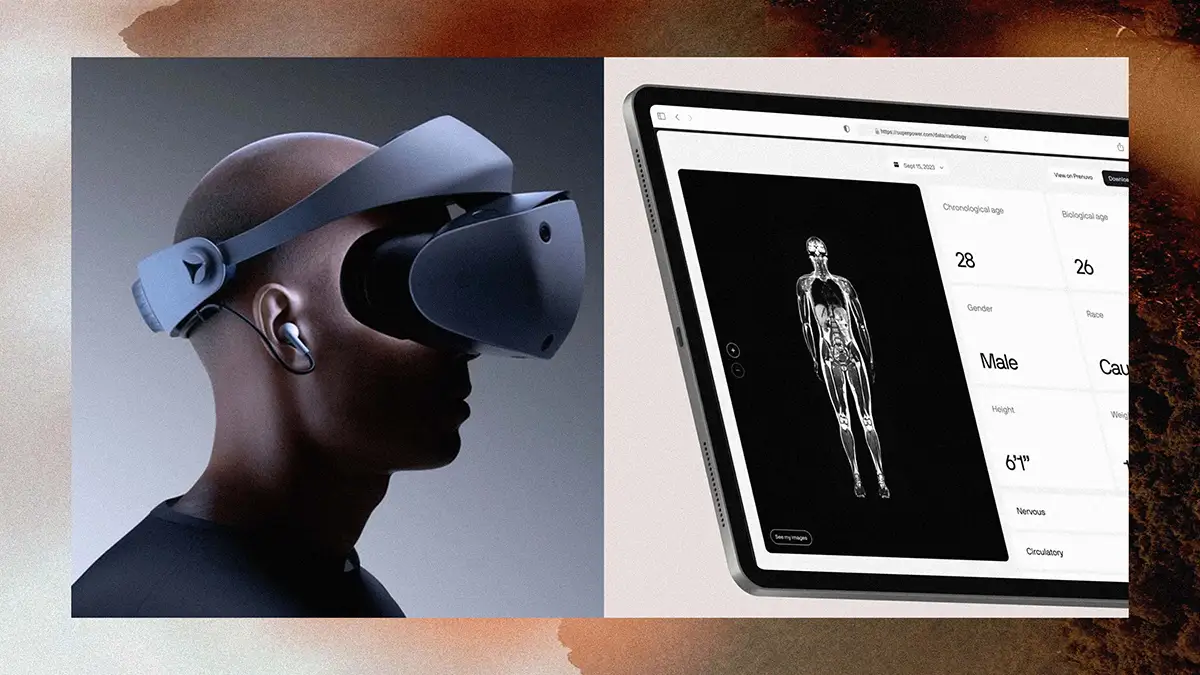
Selecting the right digital healthcare agency is a critical decision that can significantly impact the success of your digital initiatives. With the growing complexity of healthcare regulations, evolving patient expectations, and rapid advancements in technology, organizations need a partner that not only understands the industry but can also execute with precision and scale.
This section outlines key considerations for evaluating and selecting a digital healthcare agency—from strategic fit and technical capabilities to compliance expertise and past performance. Choosing the right agency ensures that your investment translates into measurable outcomes, operational efficiency, and long-term value for your patients and business.
Proven Healthcare Industry Experience
When evaluating a digital healthcare agency, it’s essential to confirm that the team has extensive experience working within the healthcare ecosystem. Agencies with a track record of serving health systems, payers, pharmaceutical companies, or digital health startups are more likely to understand the nuances of clinical workflows, patient behavior, and regulatory constraints. This industry fluency ensures that proposed solutions are realistic, compliant, and aligned with healthcare-specific challenges.
Regulatory and Compliance Capabilities
Given the strict regulatory environment in healthcare, an agency’s ability to navigate HIPAA, GDPR, FDA communications, and ADA compliance should be a top priority. Look for a digital healthcare agency that integrates compliance into every stage of design and development—ensuring that all solutions meet legal standards without sacrificing user experience or performance. Robust compliance support reduces risk and increases organizational confidence in digital rollouts.
Technical and Integration Expertise
Digital healthcare initiatives often require seamless integration with legacy systems, electronic health records (EHRs), CRMs, and third-party platforms. Agencies should demonstrate not only strong technical capabilities but also real-world experience integrating complex systems. The right digital healthcare agency will have frameworks and engineering expertise that support scalable, secure, and interoperable solutions built to handle healthcare data and workflows.
Strategic Thinking and Problem Solving
Beyond execution, a top-tier agency should serve as a strategic partner—able to assess your current digital maturity, define clear objectives, and recommend solutions that deliver lasting value. Look for a digital healthcare agency that brings market insight, patient journey mapping, and business alignment to the table. Strong strategic capabilities ensure that engagement decisions are informed, prioritized, and aligned with long-term growth goals.
Measurable Outcomes and Case Studies
Evidence of impact is a key indicator of agency quality. Reputable agencies will provide case studies, performance metrics, or client testimonials that demonstrate success across similar engagements. Whether it’s increasing patient engagement, improving system efficiency, or accelerating time to market, proven results give healthcare organizations confidence in the agency’s ability to deliver measurable value.
Cross-Functional Team Strength
The best digital healthcare agencies offer multidisciplinary teams that combine strategy, creative, technology, analytics, and compliance. This ensures that every aspect of the engagement—from user experience to data architecture—is aligned under one cohesive vision. Ask about team structure, roles, and the level of senior talent assigned to your project to ensure it meets the complexity of your consulting needs.
Communication and Collaboration Style
Effective partnerships depend on transparent communication, structured processes, and responsiveness. During the evaluation phase, pay attention to how the agency engages—whether they ask the right questions, how they handle feedback, and how well they adapt to your internal workflows. A collaborative and proactive communication style often signals a partner that will integrate well with internal teams and move projects forward efficiently.
15 Questions To Ask a Digital Healthcare Agency Before You Hire One

Before committing to a partnership with a digital healthcare agency, it’s natural to have questions—especially given the high stakes of compliance, technology integration, and patient experience in healthcare. The right agency should not only deliver technical expertise and strategic insight but also align with your organization’s goals, workflows, and standards.
This section covers key questions healthcare leaders should ask during the evaluation process to better understand an agency’s capabilities, approach, and track record. These questions help uncover how well the agency can meet your specific needs and whether they are equipped to deliver lasting value in a complex, regulated environment.
Here are 15 thoughtful and practical questions a prospective client might ask before hiring a digital healthcare agency:
- What experience do you have working with healthcare organizations similar to ours?
- How do you ensure compliance with healthcare regulations like HIPAA, GDPR, and ADA?
- Can you provide examples or case studies of measurable results from past healthcare projects?
- What is your approach to developing digital strategies for healthcare companies?
- How do you handle integration with legacy systems, EHRs, or other third-party platforms?
- Who will be assigned to our project, and what healthcare experience does your team bring?
- How do you balance user experience design with clinical accuracy and compliance?
- What is your process for managing feedback, revisions, and cross-functional collaboration?
- What are your pricing models, and how are costs typically structured for healthcare clients?
- How do you ensure data security across digital platforms and communications?
- What is your average project timeline, and what factors typically impact delivery speed?
- How do you stay current with trends, regulations, and technologies in the healthcare space?
- What analytics or reporting tools do you use to measure performance and ROI?
- Do you offer post-launch support, optimization, or maintenance services?
- How do you align your work with internal teams like IT, legal, marketing, and clinical leadership?
1. What Experience Do You Have Working With Healthcare Organizations Similar to Ours?
Understanding whether an agency has direct experience with organizations similar to yours—whether that’s a hospital system, health insurer, biotech firm, or digital health startup—helps gauge how quickly they can adapt to your industry-specific needs. Healthcare is highly specialized, and agencies with relevant experience are more likely to understand your operational workflows, patient demographics, stakeholder dynamics, and regulatory requirements. Asking this question ensures the agency won’t face a steep learning curve and can bring tested strategies and insights to the table from day one.
2. How Do You Ensure Compliance With Healthcare Regulations Like HIPAA, GDPR, and ADA?
Digital healthcare solutions must adhere to strict regulatory standards, and failure to comply can lead to significant legal and financial consequences. This question helps you determine whether the agency has systems and protocols in place to proactively address compliance throughout the project lifecycle—from design and development to content and data handling. Agencies should demonstrate knowledge of healthcare-specific policies and share how compliance is embedded into project governance, approvals, and QA processes.
3. Can You Provide Examples or Case Studies of Measurable Results From Past Healthcare Projects?
Case studies provide tangible proof of an agency’s ability to deliver results that matter—such as increased patient engagement, operational efficiency, or faster product launches. By asking for measurable outcomes, you can evaluate whether the agency’s work translates into real impact and aligns with your goals. Strong agencies will not only share past successes but explain how they define success, track KPIs, and apply lessons learned across engagements.
4. What Is Your Approach to Developing Digital Strategies for Healthcare Companies?
Digital strategy in healthcare must account for patient journeys, clinical objectives, regulatory constraints, and emerging technologies. This question reveals how an agency approaches strategic planning and whether they consider both business and user needs in their process. Look for agencies that include discovery, stakeholder interviews, journey mapping, and data analysis as part of their strategic approach to ensure the foundation of your engagement is insight-driven and goal-oriented.
5. How Do You Handle Integration With Legacy Systems, EHRs, or Other Third-Party Platforms?
Seamless integration is critical in healthcare, where systems like EHRs, CRMs, and patient portals must communicate effectively. This question assesses whether the agency has experience navigating complex IT ecosystems, especially in regulated environments. Their ability to manage APIs, legacy infrastructure, and vendor coordination will directly impact the success and scalability of your solution. Agencies should demonstrate a clear methodology for integration, testing, and long-term system interoperability.
6. Who Will Be Assigned to Our Project, and What Healthcare Experience Does Your Team Bring?
The strength of an agency engagement often depends on the team assigned—not just the firm’s overall reputation. Ask about team structure, roles, and the healthcare-specific experience of strategists, developers, designers, and compliance specialists. This helps you understand the depth of expertise you’ll be working with and ensures that the team has the right mix of industry knowledge, technical skills, and strategic thinking to deliver effectively.
7. How Do You Balance User Experience Design With Clinical Accuracy and Compliance?
Creating intuitive, accessible experiences in healthcare requires balancing user-centric design with the need for clinical accuracy and regulatory adherence. This question helps you assess whether the agency can create digital experiences that are engaging without sacrificing trust, clarity, or compliance. The best agencies involve both creative and regulatory teams throughout the design process to ensure that interfaces meet the needs of patients, providers, and legal stakeholders alike.
8. What Is Your Process for Managing Feedback, Revisions, and Cross-Functional Collaboration?
Healthcare projects often involve input from diverse internal teams—clinical, IT, marketing, legal—and managing feedback efficiently is key to keeping timelines and quality on track. This question allows you to evaluate how the agency structures collaboration, version control, and revision cycles. A well-run agency will have a clear process for gathering feedback, resolving conflicts, and incorporating input across multiple stakeholders while maintaining momentum and clarity.
9. What Are Your Pricing Models, and How Are Costs Typically Structured for Healthcare Clients?
Transparency around pricing is critical for budgeting and planning. This question reveals whether the agency uses fixed fees, hourly rates, retainers, or performance-based pricing—and how those models reflect the complexity of healthcare engagements. The right agency will be upfront about how costs are calculated, what’s included in scope, and how they handle change requests or scope creep, ensuring there are no surprises during the engagement.
10. How Do You Ensure Data Security Across Digital Platforms and Communications?
Data security is non-negotiable in healthcare, where patient and provider information must be protected at every touchpoint. This question helps uncover how the agency approaches encryption, secure infrastructure, access controls, and incident response planning. Look for answers that demonstrate a proactive security posture, regular audits, and alignment with industry best practices like NIST, HITRUST, or ISO standards.
11. What Is Your Average Project Timeline, and What Factors Typically Impact Delivery Speed?
Timelines vary significantly based on project scope and complexity, so it’s important to set expectations early. This question helps determine whether the agency can meet your deadlines and what their process looks like from kickoff to launch. The agency should be able to explain how they manage project phases, build in time for approvals and compliance reviews, and what contingencies are in place to address delays.
12. How Do You Stay Current With Trends, Regulations, and Technologies in the Healthcare Space?
The healthcare landscape evolves rapidly, with new technologies, patient expectations, and policy changes emerging regularly. This question assesses whether the agency is continuously learning and adapting. Strong agencies invest in ongoing research, participate in industry events, maintain healthcare partnerships, and regularly train their teams on new compliance mandates and digital innovations—ensuring your project won’t be outdated by the time it launches.
13. What Analytics or Reporting Tools Do You Use to Measure Performance and ROI?
Measuring success is essential, and this question uncovers how the agency tracks and reports on results. Whether it’s user engagement, platform performance, campaign metrics, or patient outcomes, agencies should offer clear dashboards, KPIs, and insights that align with your goals. Look for a reporting approach that supports iterative optimization and connects digital efforts to broader business or care delivery outcomes.
14. Do You Offer Post-Launch Support, Optimization, or Maintenance Services?
Many healthcare organizations require ongoing support after launch—whether it’s for updates, content refreshes, performance monitoring, or compliance audits. This question helps you understand whether the agency offers long-term partnership models and what level of responsiveness and proactivity you can expect post-deployment. Agencies that offer structured support plans can help ensure platform stability and continuous improvement over time.
15. How Do You Align Your Work With Internal Teams Like IT, Legal, Marketing, and Clinical Leadership?
Success in healthcare projects often hinges on how well the agency integrates with internal departments that have different priorities and constraints. This question evaluates the agency’s ability to work cross-functionally and communicate effectively across clinical, technical, and business teams. Look for examples of how they’ve coordinated stakeholder input, navigated approvals, and maintained alignment throughout the engagement lifecycle.
Searching for the Right Digital Healthcare Agency?
In today’s complex and fast-evolving healthcare landscape, partnering with a digital healthcare agency offers organizations the expertise, bandwidth, and strategic alignment needed to accelerate transformation. From navigating regulatory challenges to launching patient-centered digital experiences, these agencies bring deep industry knowledge and cross-functional capabilities that internal teams often lack the time or resources to scale. Whether the goal is to modernize infrastructure, improve patient engagement, or deliver measurable outcomes, hiring a digital healthcare agency enables healthcare brands to move faster, reduce risk, and innovate with purpose.
Why G & Co.
G & Co. stands out as a leading digital healthcare agency for organizations seeking a trusted partner at the intersection of strategy, technology, and healthcare expertise. With proven experience serving enterprise health systems, digital health platforms, and life sciences brands, G & Co. delivers tailored healthcare consulting services that are both compliant and outcome-driven. From end-to-end digital product development to omnichannel experience design and regulatory-aligned execution, G & Co. helps healthcare companies unlock growth, improve operational efficiency, and deliver digital solutions that put patients and providers first.
Submit an inquiry to G & Co. on our contact page or click on the blue "Click to Contact Us" button on the bottom right corner of your screen for your convenience. We look forward to hearing from you.






%20(1).png)






